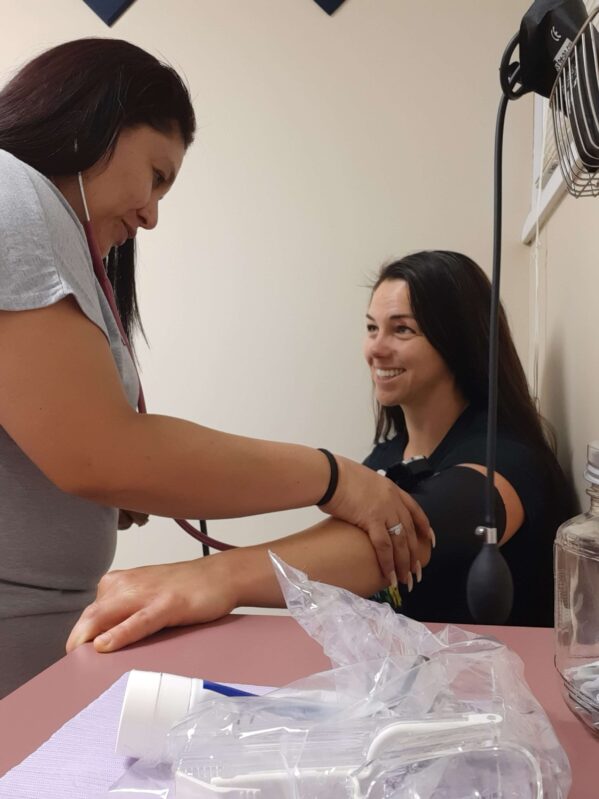
Lizzette Chairez works as a Clinic Coordinator and Spanish Interpreter – among many other tasks, Lizzette translates paperwork, calls Spanish-speaking clients to relay their test results, and assists all clients – particularly those who speak Spanish – during and beyond their appointment.
However, there is one title Lizzette does not officially carry that is naturally built into her work: an advocate.
In Lizzette’s role, being a healthcare advocate means helping patients access care, educating patients so they can make well-informed healthcare decisions, and guiding them through their medical care, insurance questions, and more – she helps patients navigate their healthcare experience.
In this navigation, Lizzette prioritizes comfort and communication as key components during, and beyond, a client’s visit. She links this to concerns she often notices about the cultural and linguistic differences in our healthcare system.
“A lot of immigrants come in very scared and worried about what is going to happen. They worry about whether we speak Spanish or if they will be able to explain what they want or get the information they need,” she says.
Understanding that key point is critical for communication, Lizzette explains, particularly when coordinating a preconception counseling process alongside a clinician.
Lizzette uses the example of a client who comes in for an STI test. Lizzette follows standard protocol, making sure to address concerns the client may have – particularly, she notes, about confidentiality. She eventually asks the client if they are interested in birth control or want to continue as they are – in many cases, she notices, the client may respond, “Well, I don’t know the information.”
So, Lizzette provides a broad overview and then lets the client initiate the conversation if they want to pursue it further. If they are interested, Lizzette asks about considerations like migraines or smoking that may narrow down safety of certain methods.
Throughout the process, Lizzette and the clinician keep it broad, open-ended, and Lizzette works through the “lingo” in English and in healthcare settings that may be difficult for immigrant clients to understand. They go step-by-step through the “physical” description of the birth control method – like hormones, placement, showing the method itself – as well as side effects.
Lizzette notes that she and the clinician recognize that a client who comes in for an STI test, or truly any client, may not be prepared to make a decision or choice that day – or may be uninterested completely.
Lizzette puts it simply, “If you like, these are the options we have, if not, no pressure.”
If the client wants to think on it, the clinician and Lizzette offer a follow up and pamphlets. Importantly, one of Lizzette’s priorities, particularly with her clients who do not speak English, is to tell them they can ask questions later. She makes sure to let clients know they can call the office at any point if they want more information.
Lizzette says, “I let my patients know, do not fear. We are here to help. This is why we come to work every single day – to help you.”
Lizzette’s approach – advocacy-minded, culturally competent, and kind – stems from her family.
“My parents were immigrants,” she says. “So, I always want to help people like that because to me, my parents are my everything. My grandparents, they are my everything. So any time anybody needs help – English, Spanish, whatever it is, I’ll go above and beyond because I want someone to do that for me if I ever need it.”